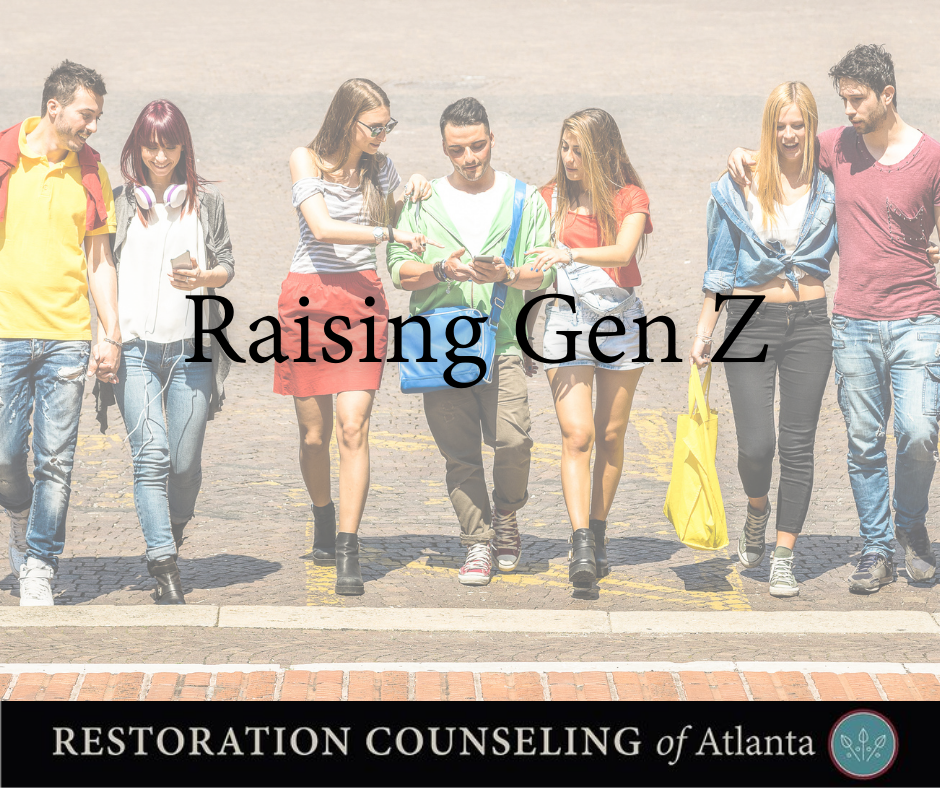If you have a child born between 1999 and roughly 2015, then keep reading. According to Barna, an evangelical Christian research group based in California, you have the privilege of raising someone born in the most diverse generation in American history! This generation is a mystery to most of us on the outside, but they are influencing culture from a young age. Soon, they will be our CEOs, tech entrepreneurs, and politicians. In this blog post, we will learn more about Gen Z and how those raising members of this generation can better connect with them.
Gen Z Facts
- Unlike any generation before them, Gen Z has always been raised with screens. Even if they don’t have phones yet, their parents and grandparents have had phones and computers for as long as they can remember.
- They have constant access to unlimited information. We have all had that moment when we realize we can just look up an actor in a movie and don’t have to wait until we think of the answer hours later. It is unbelievably easy to find an answer to any question.
- They have typically been raised by parents who were deeply affected by the 2008 recession and 9/11/2001. This often trickles down into parenting styles. This affects topics like financial responsibility, job security, career success, and safety. Though much of this generation still lives at home, and the research is still coming out, Barna hypothesizes that Gen Z places a higher value on personal achievement and less on starting families than previous generations.
Understanding Gen Z
- What is problematic, and what is simply different? I talk with parents of Gen Z teens I see in counseling about understanding what teens do that is worrisome and what is just different than the parent would have done at that age. Gen Z seems so different from previous generations, and that can feel threatening. But Gen Z has adapted impressively to the ever-changing world. Because they are exposed to diverse thoughts earlier than previous generations, they have more street smarts and awareness of the world than you or I may have had as a kid. While I am not saying this generation can do no wrong, the differences aren’t always problematic and require further examination.
- They think deeply and are light-hearted at the same time. As they scroll TikTok, they talk to their friends about depression one minute and a YouTuber the next. They look up information about COVID and then sports. Attention spans are shorter, yet this generation is learning how to think critically about various complex topics at once.
Connecting with Gen Z
- Show interest in their interests. There is a lot to learn from this generation. They are creative, entrepreneurial, passionate, and inquisitive. They have the world at their fingertips, so they have a vast array of niche interests. Many of the interests kids have today did not exist when their parents were growing up. As a result, it is difficult for parents to understand the appeal. Phrases like, “When I was your age…” can be used to imply there is something wrong with “kids these days.” If you are a parent and realize you have that thought, I challenge you to adopt a posture of curiosity about your child’s interests and believe you will learn something new.
- Make time to talk. Kids are more likely to ask Google their questions than their parents. Even if your Gen Z child has a good relationship with you, it is simply easier to ask Google or TikTok. Therefore, it is important to stay connected with your teen and let them know they can turn to you for their questions. We now know that the information we get from Google searches might not be curated for accuracy but for what the algorithm thinks the consumer wants to see. This contributes to misinformation that your child or teen might not be able to interpret properly. The pre-frontal cortex, the rational decision-making part of the brain, isn’t fully formed until age 25. They need guidance to know how to accurately process the vast amount of information they consume. Nothing beats the face-to-face connection! Family dinners, playing outside, and having quality time are still as important as ever.
To learn more, check out Barna’s research: https://www.barna.com/research/gen-z-questions-answered/

Written by Hannah Clark, APC
hannah@restorationcounselingatl.com, ext. 122
Roswell and Woodstock locations
Hannah Clark is a counselor offering therapeutic help to people from all walks of life. Her philosophy is that counseling is for everyone. Just like we go to the doctor for check-ups and take our cars to get the oil changed, mental health works the same way. Hannah has experience counseling individuals with issues such as trauma, PTSD, grief, depression, anxiety, career/life transitions, and shame. Hannah also works with married couples on their relationship and communication.

